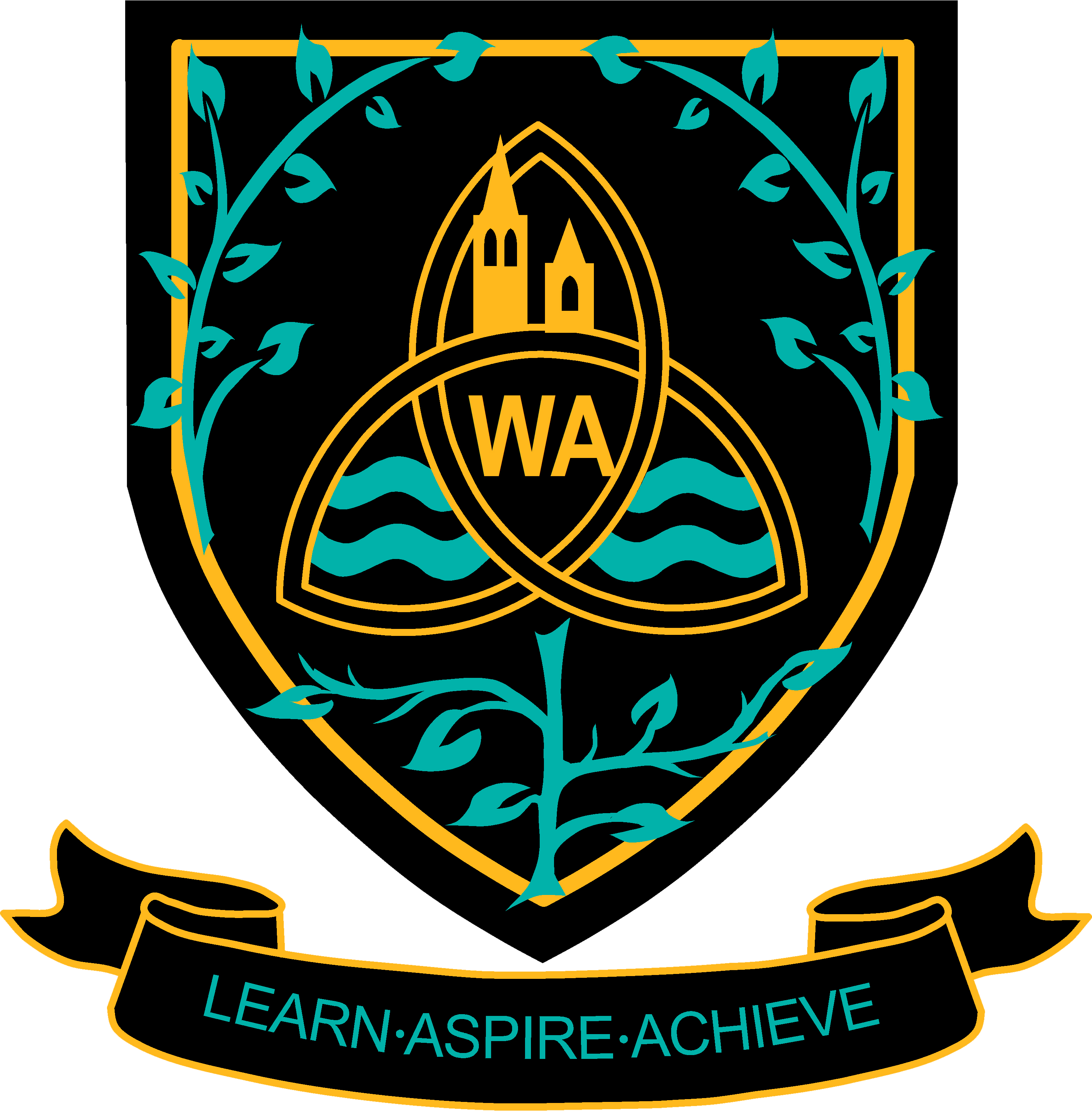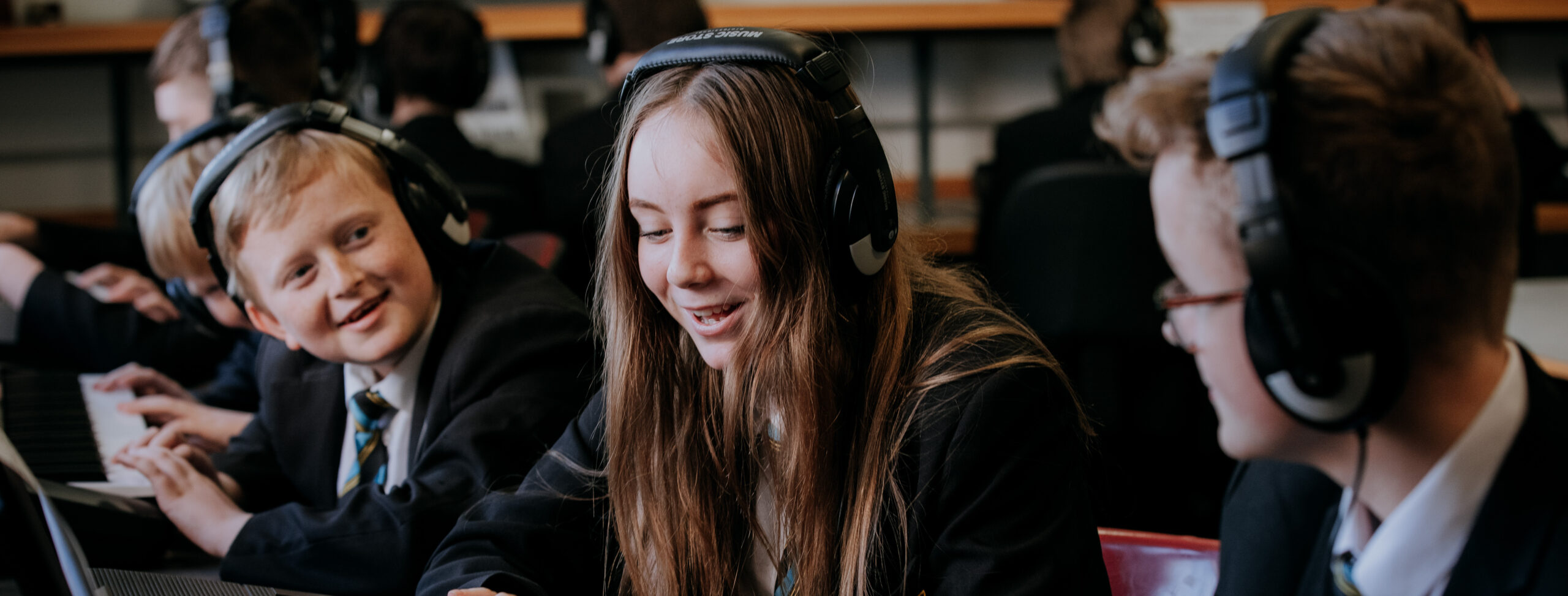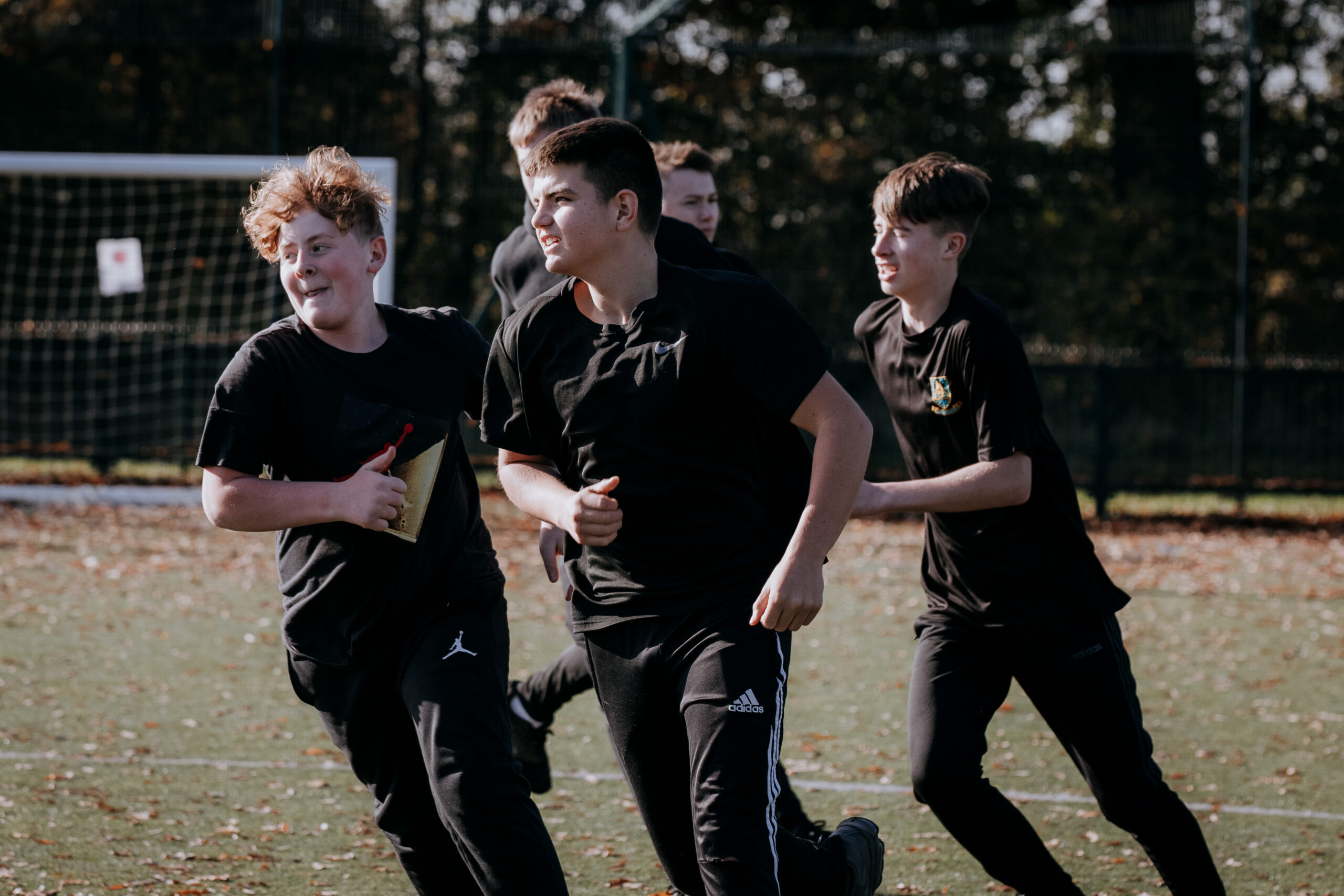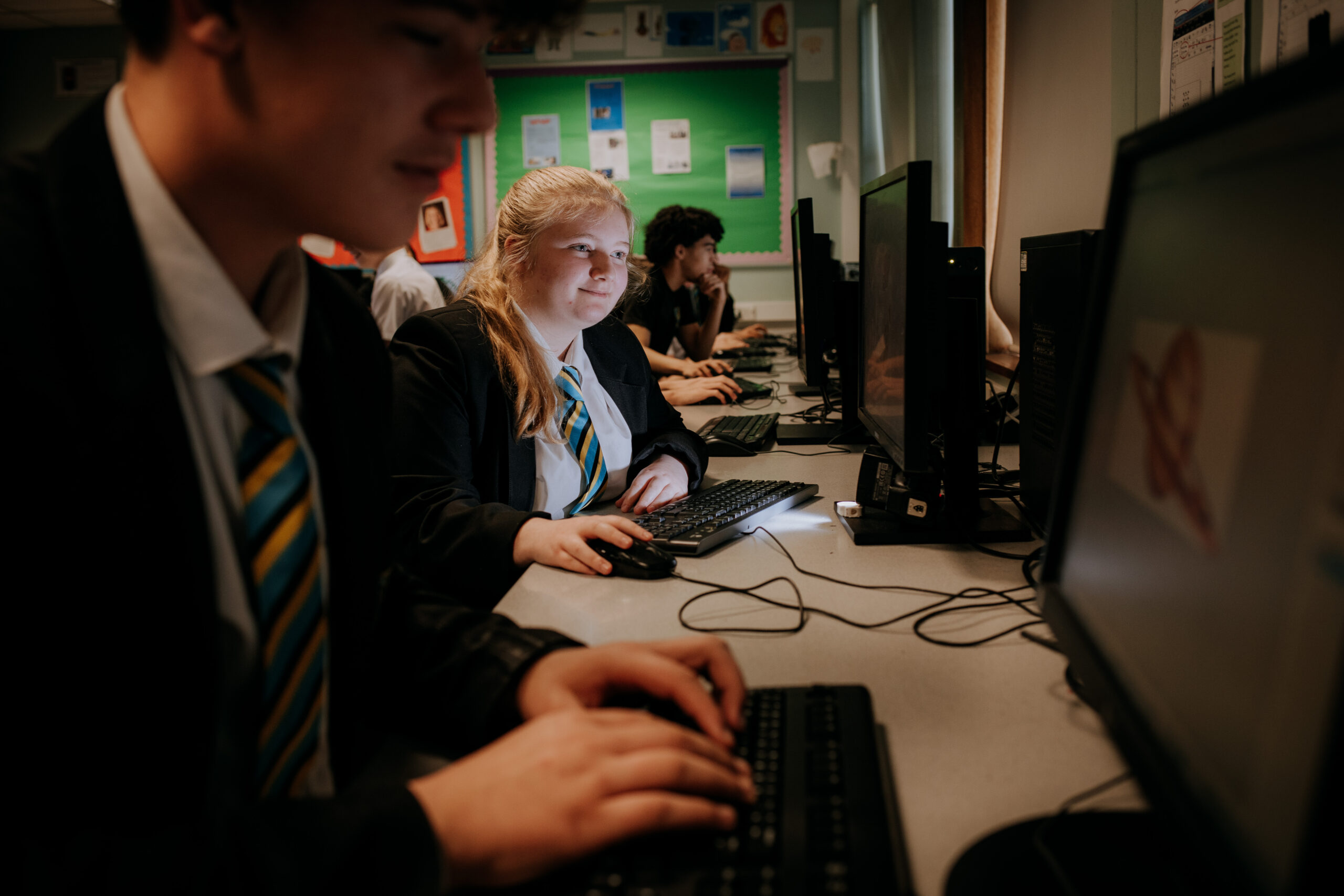Home
CURRICULUM MODEL
Key Stage 3
The structure for Years 7 through to 9 follows the same pattern as detailed below apart from Enrichment replaces one lesson of Modern Foreign Languages in Year 9. The Enrichment programme comprises modules which allow us to address any gaps or emerging issues identified to allow this year group to be better prepared for their GCSE years. This year, Enrichment includes modules on Oracy & Literacy, Leadership and Healthy Lifestyles.
Each year group comprises approximately 280 students divided into three populations with a balance of sexes, and mix of ability. Each population – known as X, Y or Z – contains three or four mixed ability tutor groups.
In Year 7, most lessons are delivered to tutor groups so that we can get to know students better before re-grouping them. It also suits our Year 7 students to be with their fellow tutees most of the time as they navigate the many different subjects and teachers compared to primary school.
In Year 8, some lessons continue to be delivered to tutor groups but subjects such as English, Maths, Science, Modern Languages, History and Geography will begin to group students according to ability. However, most subjects use broad setting with one high ability group and then two equivalent more mixed groups in each population.
In Year 9, there is a move to more fine setting by ability with most subjects having a top, middle and lower ability group in each population. Subjects such as Performance Studies and Computing are still taught in tutor groups.
Religious Education and British Values are delivered as part of the Global Citizenship programme. Relationships & Sex Education is delivered as part of the PSHE programme. Some students may be withdrawn from the mainstream curriculum on a temporary basis to support their wider development and engagement with their learning. Part of their curriculum may be delivered through our Elevate programme.
Key Stage 4
The structure for Years 10 and 11 follows the same pattern as detailed below. Each year group comprises approximately 270 students who are part of one population. The population comprises mixed ability tutor groups. English, Maths, Science and PE/HE operate within sub-populations determined by a combination of student’s ability in Maths and Science and their Option choices. The 270 students are broadly divided across three sub-populations for English, Maths and Science (normally with three sets per sub-population). Maths/English/Science sets vary in size depending on the ability grouping, and Option groups have a maximise size of 30. Option groups are mainly mixed ability to maximise choice for students but where there are multiple groups in a subject, setting is sometimes used. Students get to choose three Options with all students are directed to study at least one ‘traditional’ subject alongside the core of English, Maths and Science. The EBacc route is guaranteed for any student who opts for it (i.e. one Humanity and one MFL). Our most ambitious and able students are encouraged to follow the EBacc route.
A small number of selected students have the opportunity to follow a reduced programme of GCSE/L2 qualifications following discussions between home and school, and this can include Supported Learning in place of one Option.
The following table shows the organisation of the KS4 academic curriculum.
Students in the three top sets for Science study the three separate Sciences at GCSE whereas other students followed the Combined Science course worth two GCSEs. Students in the three top sets for Maths are offered the opportunity to be entered for a GCSE in Further Mathematics if they choose to. Where it occurs, the setting of groups is based on analysis of target grades as well as evidence from on-going assessment. Computing is delivered through specific subjects. Relationships & Sex Education, Religious Education, British Values and are delivered as part of the PSHCE programme.
Cross Curricular Themes
Literacy, numeracy, SMSC and British Values are delivered using a co-ordinated and integrated approach across both key stages of the curriculum and through the use of Enrichment days or mornings.
Tutor Time
Each day begins with time in tutor groups and this provides an opportunity to set up expectations for the day, as well as giving time for individual support of students through monitoring and guidance in relation to their development and progress. It is also a time when some whole school issues or themes, or appreciation of the wider world, can be considered. Similar themes and issues are addressed through year group assemblies at these times.
Extra-Curricular Activities
The academic curriculum is supported by numerous activities that occur outside of timetabled lessons both before and after school, and at lunchtime. These include intervention and support programmes for KS4 students that help to better prepare them for controlled assessment and examinations, as well as offer an opportunity to ‘catch up’ on missed or misunderstood work.
They are also enrichment activities which ‘add value’ to the academic curriculum offer which include sporting activities, training and competitions, musical and dramatic performances, computing and design clubs, school council and access to the library and its resources.
Extra-Curricular Trips and Visits
The school also provides opportunities to experience activities beyond the school setting. Many of these have clear links to the curriculum such as theatre trips, a residential in France, field trips in Geography, and visits to local companies for Business Studies and Health & Social Care. Work Experience also takes part in Y10 forming a key part of their CIEAG education.





